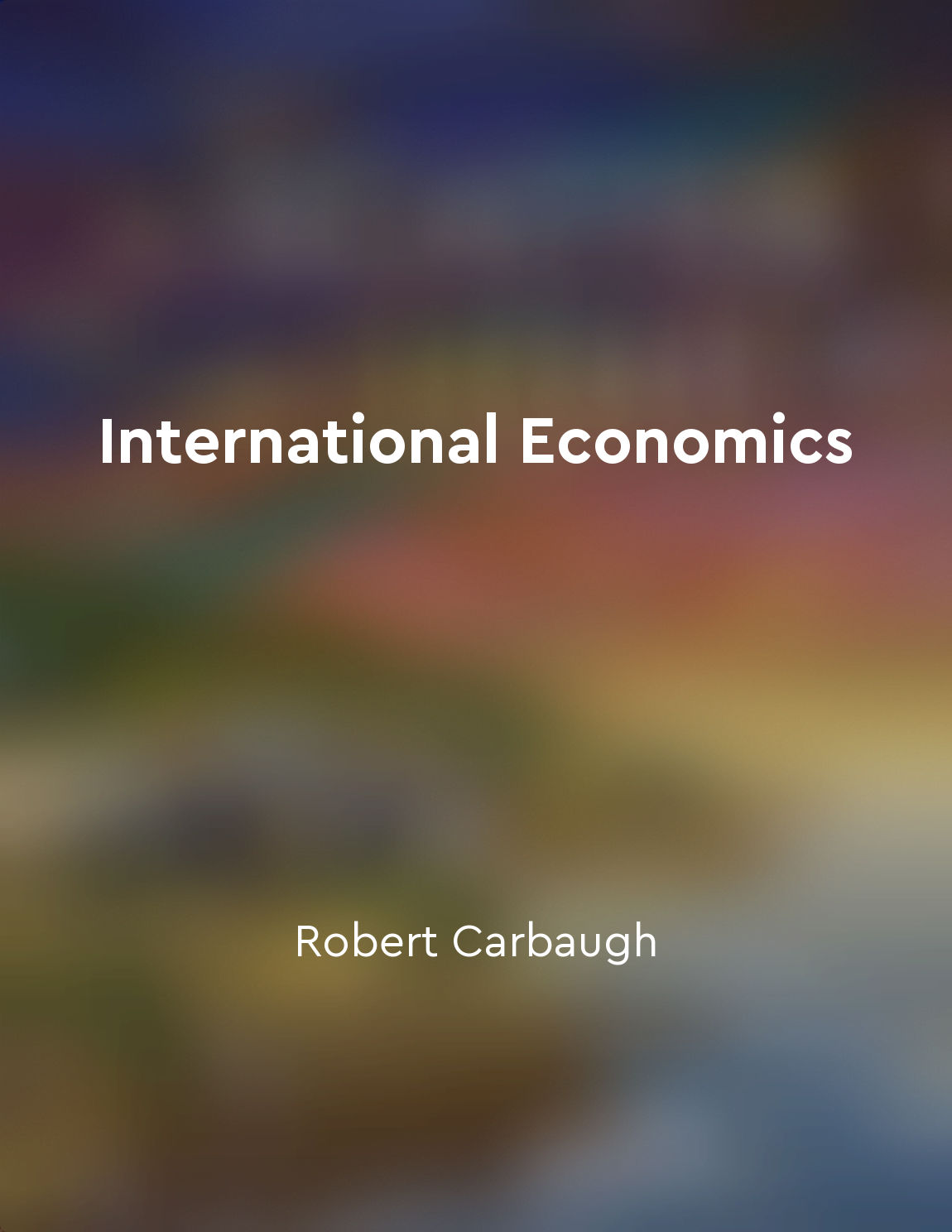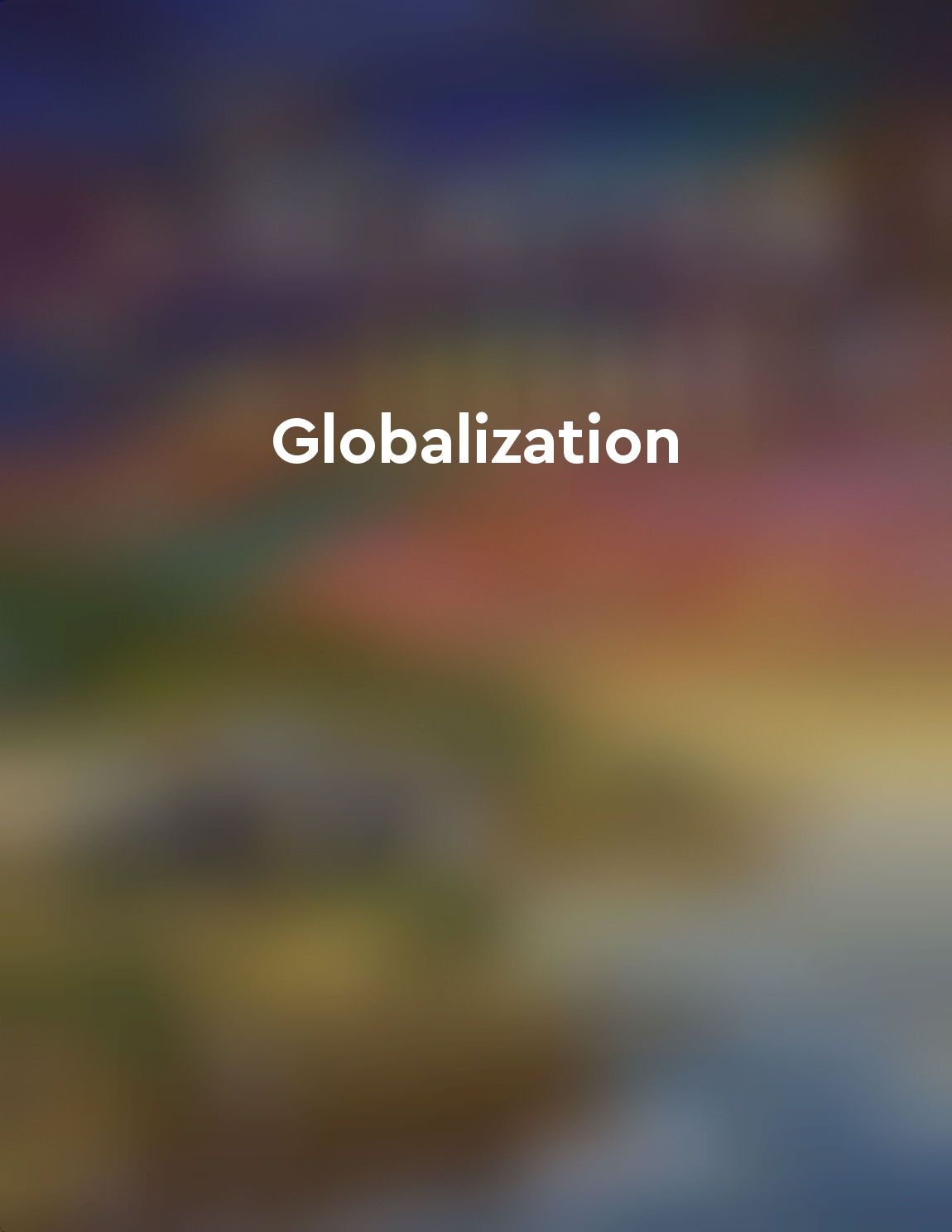Globalization from "summary" of International Relations: The Key Concepts by Martin Griffiths,Terry O'Callaghan
Globalization refers to processes that increase the interconnectedness and interdependence of countries and societies on a global scale. It involves the exchange of goods, services, information, ideas, and people across borders, leading to the creation of a global economy, culture, and political system. Globalization is driven by advancements in technology, such as the internet and telecommunications, which have significantly reduced barriers to communication and transportation. One of the key aspects of globalization is economic globalization, which involves the increasing integration of national economies into a single global economy. This is facilitated by the liberalization of trade and investment policies, as well as the growth of multinational corporations that operate across multiple countries. Economic globalization has led to the outsourcing of production and the movement of capital, goods, and services across borders in search of lower costs and new markets. Another aspect of globalization is cultural globalization, which involves the exchange and diffusion of ideas, values, and cultural practices across different societies. This is often facilitated by the media and popular culture, which play a crucial role in shaping people's perceptions and identities on a global scale. Cultural globalization can lead to the homogenization of cultures, as well as the spread of Western cultural values and norms. Globalization also has political implications, as it challenges the traditional notion of state sovereignty and the ability of states to control their own affairs. The rise of international organizations, such as the United Nations and the World Trade Organization, has led to the creation of a global governance system that seeks to address issues that transcend national borders, such as climate change, terrorism, and human rights. While globalization has brought about many benefits, such as increased economic growth and cultural exchange, it has also been criticized for leading to inequalities, environmental degradation, and the erosion of local cultures and identities. As such, the debate over globalization continues to be a central issue in international relations, as countries and societies grapple with the challenges and opportunities that come with increased interconnectedness and interdependence on a global scale.Similar Posts

Free trade agreements promote open markets
Free trade agreements are designed to reduce barriers to trade between countries, such as tariffs and quotas, in order to promo...
Another world is possible
Imagine a world where justice reigns, where all people are equal, and where the environment is protected. This vision of a bett...
Artificial intelligence posed ethical dilemmas
As humans delved deeper into the realm of artificial intelligence, they encountered a myriad of ethical dilemmas that challenge...
Grassroots organizing is powerful
Grassroots organizing is powerful. It is a principle that has been proven time and time again throughout history. When ordinary...

Educational opportunities
Educational opportunities play a crucial role in the process of globalization. The ability to access quality education is essen...
